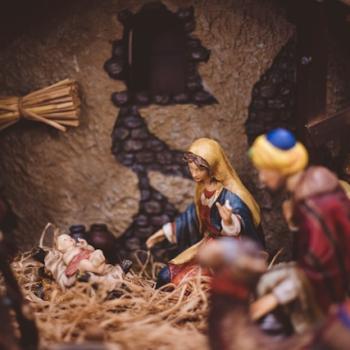In past articles, we have looked at two pieces of Science Fiction: A Brave New World, and Annihilation. With this article, I’d like to go back to the roots of the science fiction genre. Frankenstein is largely considered one of, if not the first, science fiction books written. It is also a brilliant gothic horror that explores the devastation when a creator abandons his creation. Frankenstein contrasts with the Genesis narrative of God walking in the garden with Adam and Eve and how he has not abandoned us even today.
The Act of Creation.
There is an oft-repeated, rather geeky, proverb in the bookish community.
“Knowledge is knowing that Frankenstein wasn’t the monster. Wisdom is knowing he was.”
Frankenstein is a book about creation. If you boil the classic story down to its most basic idea, it’s a book exploring the complex dynamics between a creator, and his creation.
Mary Shelley wrote her most famous book in 1818 for a “scary story” competition at Lord Byron’s home. While other writers get the moniker “father of science fiction”, the idea that the genre began here, with a woman whose interests were piqued by contemporary science, is compelling.
The story centers around a scientist, Victor Frankenstein, in his attempt to build the perfect man. He pieces together bits of corpses and electrocutes the result, instilling “life” in the same way that Mary had once seen demonstrated in a traveling freak show. Once the experiment comes to life, however, Frankenstein is so disgusted by his creation that he runs from it, leaving the monster to make its way in a world that hates it.
The narrative continues to follow the monster as it is introduced to the meaning of friendship and love from a blind old man. It is also taught how to speak. It learns hatred and fear from less kindly strangers. Eventually, that fear drives it to start killing, and to enjoy it. Its goal is to punish Frankenstein for the treatment it has received.
The monster decides that it needs something like itself if it is ever to feel loved. Of course, it reaches for the same thing that so many humans do: romance. With relentless fury, it hounds Frankenstein for a bride. In a culmination of those needs, it kills Frankenstein’s bride in retribution for the denial.
The book ends with Frankenstein’s vengeful pursuit of the monster into the North Pole and beyond.
Creation is the inciting reason for the story, and the driving force that keeps the monster and his creator at odds. The book itself created its author’s career, and later, a genre. Creation is not, however, depicted as a good thing in Mary Shelley’s early classic. A look into her life before its birth might explain why.
Abandoned by the Creator.
Frankenstein’s monster seems, by all accounts, to view himself as a child to his creator, rather than just an experiment. He views himself as a family member abandoned and unloved.
This resonates powerfully with Mary Shelley’s own experience with her father. As a child, she and her elder sister were adored by their father, though their mother died in childbirth. However, after his remarriage, he forgot them entirely. Their stepmother hated them and convinced their father to shun them as well.
Later in life, Mary’s father ended their relationship entirely when Mary became pregnant out of wedlock. The father of Mary’s child, and the husband who would later give MARY the last name she made famous, believed in the free love movement. Mary professed the same liberal perspective but was clearly hurt over her husband’s affairs. Loss and suffering continued to plague their marriage long afterward, with multiple of Mary’s children dying in their infancy.
It is easy to see why the idea of a creator who abandons his creation held so much power over Mary. Unfortunately her experience with her father did not teach her that a parent would not abandon the child they love. Enough so that when asked to write a horror story, she dug into her own experiences. These are not experiences that are at all isolated to Mary Shelley. Many of us experience similar hurts. Parents and Guardians may have left us, perhaps of their own free will and maybe by death.
Even if they haven’t physically left, all too many of us are familiar with feeling emotionally or physically neglected. Some may even apply that sensation to our relationship with God. After all, isn’t he supposed to be near to us? Isn’t he called a father, brother, healer, more? How can he demand we do not fear, but leave us in the middle of so much fear?

The Nearness of the Maker
The book of Psalms speaks often about the feeling of abandonment, vacillating between “Do not turn away from me, Oh God” to “You are my rock and my fortress”. In the very center we find David preaching comfort to himself through the understanding that God is his maker. “Where can I go from your Spirit?” he asks in Psalm 139 “Where can I flee from your presence?” His reasoning as to why God will not abandon him is written in the same poem. “For you created my inmost being; you knit me together in my mother’s womb.”
The Creator knows every intimate part of us. Unlike Frankenstein, he will not be surprised by any of our ugliness. He is familiar with every part of His masterpiece and He does not hate any of it.
Victor Frankenstein saw what he had made and ran in fear. The Bible indicates that God was not just spiritually present with the people he created (as he is omnipresent) but He enjoyed physically spending time with them. In Genesis 3: 8-10 we see that Adam and Eve are frightened by God’s presence in the garden of Eden, but not because it is unfamiliar. Scripture treats it as normal for God to walk with the children he created. Adam says “I heard the sound of you in the garden,” in other words, they were sounds he was familiar with. Adam couldn’t mistake God’s presence in the garden for a friendly animal, the wind, or anything else in the newly created nature.
I love how the Jesus Storybook Bible, which I referenced in my first article “Illumination”, introduces the idea. It says “God loved them with all His heart. And they were lovely because He loved them”.
In Frankenstein, Mary comes to terms with the abandonment of her father through her depiction of the Monster’s suffering. The monster calls his maker “father”. It is, however, a name that Victor Frankenstein, like Mary’s own father, sheds with disgust. A common misconception leads people to believe that scripture calls all humanity God’s children. It is a dangerous lie because it will lead us to that same feeling of abandonment. Why, we ask, would God punish His own children with eternal torment?
Scripture, however, makes it clear that we are all by nature, God’s enemies. (Romans 5:10) “For if while we were enemies we were reconciled to God by the death of his Son, much more, now that we are reconciled, shall we be saved by his life.” It is only by the shedding of Christ’s blood that we, the orphan can be adopted. Galatians 4: 4-7 tells us: “But when the fullness of time had come, God sent forth his Son, born of woman, born under the law, to redeem those who were under the law, so that we might receive adoption as sons. And because you are sons, God has sent the Spirit of his Son into our hearts, crying, “Abba! Father!” So you are no longer a slave, but a son, and if a son, then an heir through God.”
Where Victor Frankenstein’s friends and family were killed because he refused to accept his creation as his son, God shed His blood so we could be adopted as His.
He Will Not Abandon What He Created.
The creator has moral rights over a creation. If I, for instance, have painted a beautiful landscape, I can add or take away from the painting in any way I’d like. Unless I sell the rights to it, I can paint over it, burn it, or paint a Godzilla in it. As my creation, it is subject to my definition. If anyone else came and began painting over it, it would be considered destruction and damage. That artist’s skill in comparison to mine is of no consequence.
As the creator, God defines His creation. Victor Frankenstein defined his creation as well, sentient though it was. Frankenstein defined his monster with hatred and turned it into something to be feared and loathed. God defines us by His love for us.
Hebrews 13:5 gives us the words we need to hear. “I will never leave you nor forsake you“. We can rejoice in the comfort that our creator is not like Frankenstein. He chooses to walk with us in the garden and in the valley, and will not abandon us.
Join me Monday, October 7, 2024 to look at God in the science fiction-horror movie Life.














